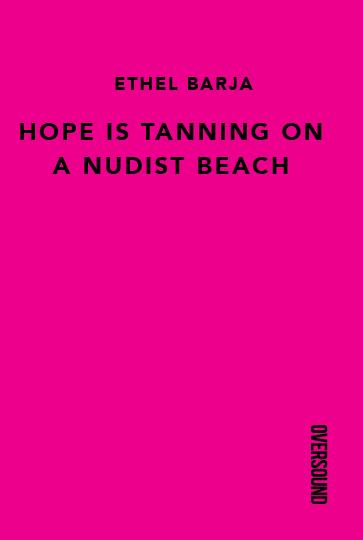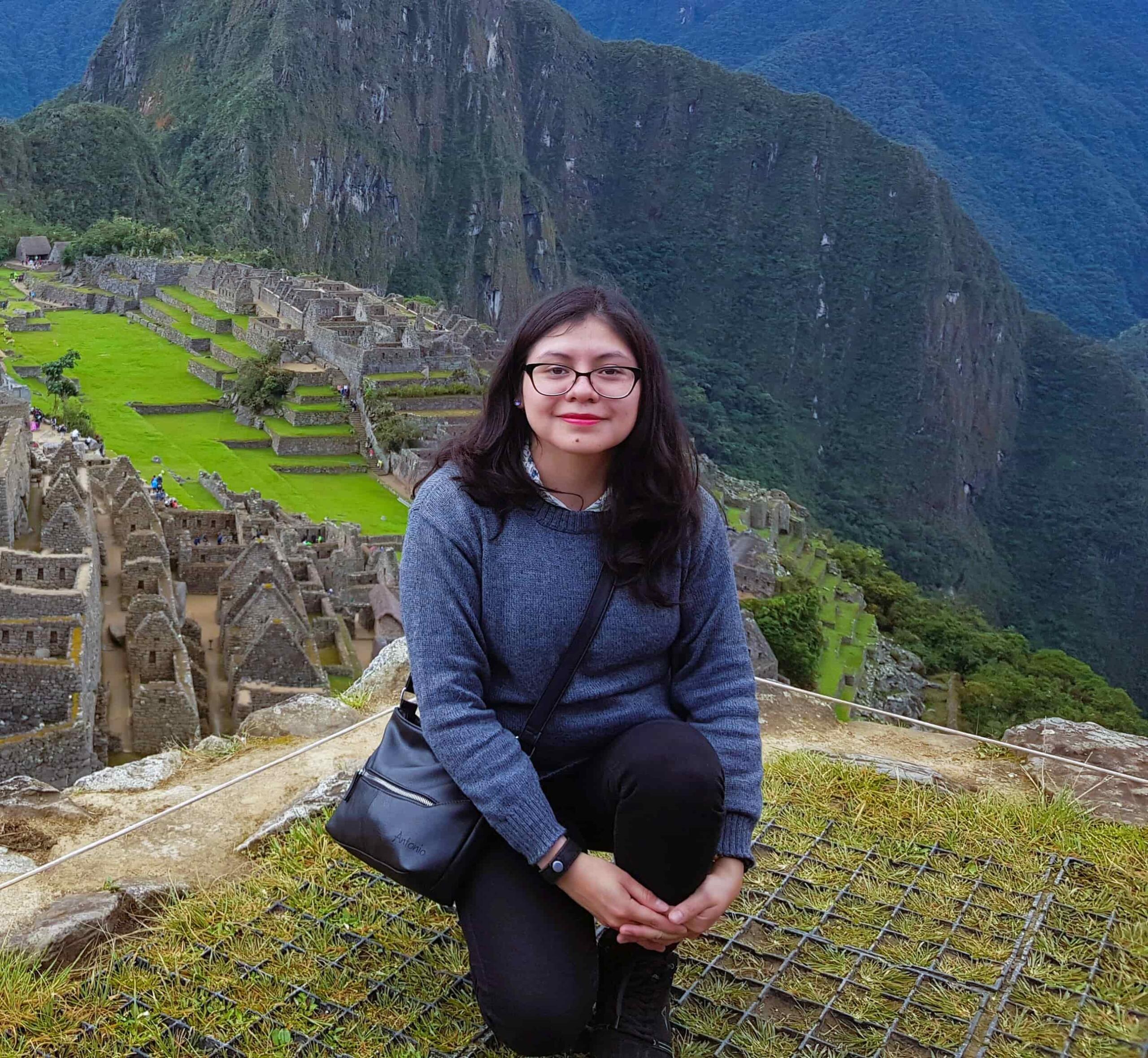
From Hope is Tanning on a Nudist Beach
By Ethel Barja Cuyutupa

Hope is Tanning on a Nudist Beach is out now with Oversound!
Hope does not rise in the intimacy of the clouds and the sunlight. Hope always sinks you in a mysterious bowl with absent noodles that left brown marks in the bottom. The noodles were there and someone took them out, or that was just a ghost dish swallowing your breath and luring you to taste broth and void.
Barefoot in these lines I lie down for a moment. Hope is an anachronistic love, a survival tide in the aftermath of a tsunami. Hope is a cautious collector of twigs and leaves with no descendants. Hope is the thick fabric of time that you prick like a steak and swallow. Hope is this reasoning of the unruled language that can build a shelter with a skylight to see the chaos and its constellations, and even an exploiting supernova without fear.
Hope is in love with Future and she is going to ask him to be her prom date. Hope broke Present’s heart, who has been secretly in love with her, and recently stopped wearing braces.
Hope was cracked from the outset and all that water of uncertainty has festered in its walls, but a roof is a roof and I come dragging my rag doll and a loaf of bread on my shoulders.
Learning to wait means to shake your body, to show your hips full of grace, and by all means to find a way how to deal with hollowness; and, obviously, you dwell there, you draw your favorite pet on the rocks with a shiny red shadow; or you find ornaments to cover its depth, lock your weapons up there or fill it with the bones of dinner that you boiled several times until they were soft.
Learning to wait is to analyze what a delayed clairvoyance means, to perform the voice of the shepherd like a retiring opera singer, dropping all the high notes, expecting the applause before time; simply to pretend tuning your voice to crack all the glasses of every waiting room, when you can barely hum.
Learning to wait is refusing to translate and to keep all creatures on one side of the river; it is to keep all the creatures tight in the middle of the bridge, rationing food and water; it is to keep the creatures producing with low wages on one side of the river in alternating seasons. Refusing to translate is to invite the creatures to suicide.

Ethel Barja Cuyutupa (Huanchar, Peru, 1988) Ph. D. Brown University. She is a scholar, educator, and awarded writer. Her publications include Gravitaciones (2013), Insomnio vocal (2016), Rambling Journey followed by Wandeo (2019), Hope is Tanning on the Nudist Beach (2022), and La muda (2023). She is also recipient of Cartografía Poética (Peru, 2019), Oversound Prize (USA., 2021), and the Juan Felipe Herrera Best Book in English – International Latino Award (USA., 2023). She is currently an Assistant Professor in the Modern Languages and Intercultural Studies Department at Salisbury University. She has also served as an instructor at Brown University, the University of Illinois at Chicago, and the Pontificia Universidad Católica del Perú.